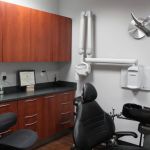- 1-understanding-tooth-sensitivity-caused-by-brushing
- 2-common-brushing-habits-that-lead-to-sensitivity
- 3-effective-brushing-techniques-to-prevent-sensitivity
- 4-tooth-sensitivity-solutions-and-remedies
- 5-real-life-experience-preventing-sensitivity
- 6-professional-advice-for-sensitive-teeth-care
Understanding Tooth Sensitivity Caused by Brushing
Tooth sensitivity caused by brushing is a common dental complaint that can seriously affect daily comfort and oral health routines. This sensitivity often arises when brushing habits inadvertently damage the protective layers of the teeth, exposing the underlying dentin or irritating the gums. Understanding the cause is the first step toward prevention.
The enamel on our teeth acts as a shield protecting the sensitive inner layers. Overbrushing, using a hard-bristled toothbrush, or brushing with excessive force can wear down this enamel or cause gum recession. This damage leads to exposed dentin, which contains microscopic tubules that connect to nerve endings, resulting in the sharp, uncomfortable sensation known as tooth sensitivity.
Sensitivity caused by brushing habits is often exacerbated by the use of abrasive toothpaste or brushing immediately after consuming acidic foods or drinks. These factors combine to weaken the tooth surface, increasing vulnerability. Therefore, modifying brushing techniques and choosing appropriate oral care products is essential for prevention and relief.
Common Brushing Habits That Lead to Sensitivity
Many people unknowingly adopt brushing habits that contribute to tooth sensitivity. One of the most prevalent mistakes is applying too much pressure while brushing. Some believe that harder brushing cleans better, but this approach damages enamel and gums over time.
Another frequent culprit is the use of hard or medium bristle toothbrushes. These can be harsh on teeth and gum tissues, especially when combined with aggressive brushing motions. Additionally, brushing too soon after consuming acidic substances—like citrus fruits, soda, or wine—can soften enamel temporarily, making it more susceptible to abrasion.
Irregular brushing frequency and technique inconsistencies also play a role. For example, skipping flossing or failing to brush for the recommended two minutes can lead to plaque buildup and gum inflammation, indirectly worsening sensitivity.
Finally, using abrasive toothpaste, especially those designed for whitening, can exacerbate enamel wear. Many whitening formulas contain micro-abrasives that may not be suitable for people with sensitive teeth, accelerating the discomfort caused by brushing habits.
Effective Brushing Techniques to Prevent Sensitivity
Preventing tooth sensitivity starts with adopting gentle and effective brushing techniques. Dental professionals recommend using a soft-bristled toothbrush to minimize enamel abrasion and gum irritation. Soft bristles effectively remove plaque while being kinder to tooth surfaces.
The correct brushing method involves holding the brush at a 45-degree angle toward the gum line and using gentle, circular motions rather than aggressive back-and-forth scrubbing. This technique cleans effectively without damaging enamel or gums.
It's also important to brush for at least two minutes twice daily, ensuring that all tooth surfaces are cleaned properly without overdoing it. Timing and technique combined ensure removal of plaque while protecting delicate tissues.
Waiting at least 30 minutes after consuming acidic foods or drinks before brushing allows enamel to reharden and reduces damage risk. Drinking water or rinsing the mouth immediately after acidic intake can also help neutralize acids.
Choosing toothpaste formulated specifically for sensitive teeth can make a significant difference. These formulas often contain potassium nitrate or stannous fluoride, ingredients clinically shown to block nerve signals and strengthen enamel over time.
Tooth Sensitivity Solutions and Remedies
Beyond adjusting brushing habits, there are several practical solutions and remedies to alleviate and prevent tooth sensitivity. Over-the-counter desensitizing toothpaste is a popular first step, offering gradual relief when used consistently over weeks.
For more persistent sensitivity, dental treatments such as fluoride varnishes or professional desensitizing agents may be recommended. These treatments strengthen enamel and reduce nerve sensitivity more rapidly.
In cases where gum recession exposes the tooth root, a dentist might suggest protective sealants or gum graft procedures to restore coverage and protect sensitive areas.
Lifestyle changes also complement these remedies. Reducing consumption of acidic and sugary foods, avoiding teeth grinding, and maintaining regular dental checkups are crucial preventive steps.
For those seeking personalized product recommendations or professional guidance, Dentistry Toothtruth offers tailored solutions and expert advice to help find the most suitable oral care products and services to address tooth sensitivity effectively.
Real-Life Experience: Preventing Sensitivity Through Brushing Changes
Take the example of Emily, a 28-year-old who suffered from sharp sensitivity triggered by brushing her teeth too vigorously with a hard toothbrush and whitening toothpaste. After experiencing discomfort for months, she consulted her dentist who advised switching to a soft-bristled brush and a sensitivity-specific toothpaste.
Emily also learned proper brushing techniques, including gentle circular motions and waiting 30 minutes after coffee before brushing. Within weeks, her sensitivity decreased significantly, and she regained confidence in her daily oral care routine.
Stories like Emily’s highlight the importance of understanding how brushing habits affect tooth sensitivity and how simple adjustments can deliver remarkable improvements in comfort and dental health.
Professional Advice for Sensitive Teeth Care
Dental professionals emphasize a holistic approach to managing tooth sensitivity caused by brushing habits. Regular dental visits allow early detection of enamel wear and gum recession, enabling timely interventions before symptoms worsen.
Professional cleanings and assessments ensure plaque does not build up and contribute to gum disease, which can increase sensitivity. Dentists can also provide customized recommendations for toothbrushes, toothpaste, and brushing techniques tailored to individual needs.
Additionally, dentists might prescribe at-home treatments like prescription fluoride gels or recommend dietary changes to support enamel health. Maintaining open communication with your dental care provider is key to finding effective, lasting solutions.
For those interested in exploring specific products or professional services to manage tooth sensitivity, Dentistry Toothtruth offers comprehensive resources and expert guidance to support your oral health journey.







 South River Dental- Clint Kroeker DDS5.0 (12 review)
South River Dental- Clint Kroeker DDS5.0 (12 review) Helene M. Dolce, DDS4.0 (136 review)
Helene M. Dolce, DDS4.0 (136 review) David J Wiseman, DDS4.0 (11 review)
David J Wiseman, DDS4.0 (11 review) Wild Family Dentistry4.0 (30 review)
Wild Family Dentistry4.0 (30 review) Custom Endodontics4.0 (67 review)
Custom Endodontics4.0 (67 review) Dr. Dental: Dentistry & Braces4.0 (459 review)
Dr. Dental: Dentistry & Braces4.0 (459 review) The Importance of Oral Health Education During Pregnancy for a Healthy Pregnancy
The Importance of Oral Health Education During Pregnancy for a Healthy Pregnancy Best Tips for Brushing Your Teeth Properly for Healthy Gums: Essential Techniques for Oral Health
Best Tips for Brushing Your Teeth Properly for Healthy Gums: Essential Techniques for Oral Health Why Skipping Dental Checkups Can Lead to Bigger Oral Health Problems
Why Skipping Dental Checkups Can Lead to Bigger Oral Health Problems Advantages of Porcelain Dental Restorations
Advantages of Porcelain Dental Restorations How Can Diabetes Cause Tooth and Gum Problems? Preventing and Managing Oral Health Issues
How Can Diabetes Cause Tooth and Gum Problems? Preventing and Managing Oral Health Issues Healthy Habits for Promoting Good Oral Health and Hygiene: Tips for a Healthy Smile
Healthy Habits for Promoting Good Oral Health and Hygiene: Tips for a Healthy Smile